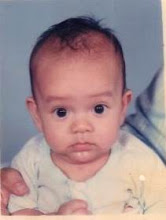What are communication disorders?
There are several different types of communication disorders, including the following:
- expressive language disorder
Expressive language disorder identifies developmental delays and difficulties in the ability to produce speech. - mixed receptive-expressive language disorder
Mixed receptive-expressive language disorder identifies developmental delays and difficulties in the ability to understand spoken language and produce speech.
What causes communication disorders?
Communication disorders may be developmental or acquired. The cause is believed to be based on biological problems such as abnormalities of brain development, or possibly by exposure to toxins during pregnancy, such as abused substances or environmental toxins such as lead. A genetic factor is sometimes considered a contributing cause in some cases.
Who is affected by communication disorders?
For unknown reasons, boys are diagnosed with communication disorders more often than girls. Children with communication disorders frequently have other psychiatric disorders as well.
What are the symptoms of communication disorders?
The following are the most common symptoms of communication disorders. However, each child may experience symptoms differently.
Young children with communication disorders may not speak at all, or may have a limited vocabulary for their age. Some children with communication disorders have difficulty understanding simple directions or are unable to name objects. Most children with communication disorders are able to speak by the time they enter school, however, they continue to have problems with communication.
School-aged children often have problems understanding and formulating words. Teens may have more difficulty with understanding or expressing abstract ideas.
The symptoms of communication disorders may resemble other problems or medical conditions. Always consult your child's physician for a diagnosis.
How are communication disorders diagnosed?
Most children with communication disorders are first referred for speech and language evaluations when their delays in communicating are noted. A child psychiatrist is usually consulted, especially when emotional or behavioral problems are also present. A comprehensive evaluation also involves psychometric testing (testing designed to assess logical reasoning abilities, reactions to different situations, and thinking performance; not tests of general knowledge) and psychological testing of cognitive abilities.
Treatment for communication disorders:
Specific treatment for communication disorders will be determined by your child's physician, special education teachers, and speech/language and mental health professionals based on:
- your child's age, overall health, and medical history
- extent of the disorder
- type of disorder
- your child's tolerance for specific medications or therapies
- expectations for the course of the disorder
- your opinion or preference
A coordinated effort between parents, teachers, and speech/language and mental health professionals provides the basis for individualized treatment strategies that may include individual or group remediation, special classes, or special resources. Two approaches are usually considered. Remedial techniques are used to increase communication skills in the areas of the deficit. A second approach helps the child build on his/her strengths to circumvent his/her communication deficit.
Prevention of communication disorders:
Specific preventive measures to reduce the incidence of communication disorders are not known at this time. However, early detection and intervention can address the developmental needs and academic difficulties to improve the quality of life experienced by children with communication disorders.






No comments:
Post a Comment